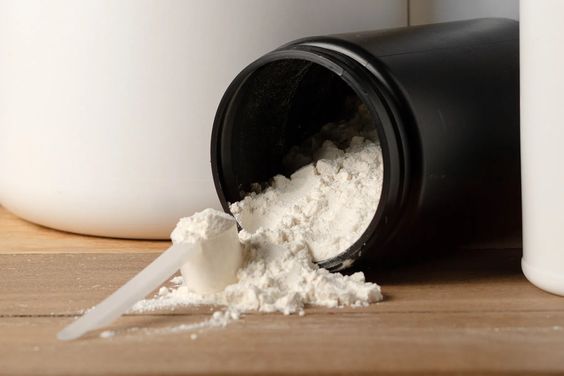
Creatine: The Ultimate Guide to Boosting Your Fitness
Creatine is one of the most extensively researched and popular supplements in the fitness industry. Whether you’re a seasoned athlete or just starting your fitness journey, understanding creatine can help you maximize your performance and achieve your goals. In this blog post, we’ll explore what creatine is, how it works, its benefits, and how to incorporate it into your routine.
What is Creatine?
Creatine is a naturally occurring compound found in small amounts in certain foods, such as red meat and fish. It is also synthesized in the body from amino acids. Most creatine is stored in the muscles, where it plays a crucial role in energy production during high-intensity exercise.
How Does Creatine Work?
Creatine helps replenish adenosine triphosphate (ATP), the primary energy carrier in cells. During short bursts of intense activity, such as sprinting or weightlifting, your body relies on ATP for energy. However, ATP stores are limited and deplete quickly. Creatine supplementation increases your body’s phosphocreatine stores, allowing for faster ATP regeneration. This leads to improved performance in high-intensity activities.
Benefits of Creatine
1. Enhanced Strength and Power
Numerous studies have shown that creatine supplementation can lead to significant increases in strength and power output. This is particularly beneficial for athletes involved in weightlifting, sprinting, and other explosive sports.
2. Improved Muscle Mass
Creatine can help increase muscle mass through several mechanisms:
- Increased Water Retention: Creatine draws water into muscle cells, resulting in a temporary increase in muscle size.
- Enhanced Muscle Protein Synthesis: Creatine may promote an increase in muscle protein synthesis, aiding in muscle growth over time.
3. Better Exercise Performance
Research indicates that creatine can enhance performance in high-intensity, short-duration activities, such as sprinting and resistance training. Users often report improved endurance and reduced fatigue.
4. Faster Recovery
Some studies suggest that creatine may aid in recovery after intense exercise by reducing muscle cell damage and inflammation. This means you can train harder and more frequently.
### 5. Cognitive Benefits
Emerging research suggests that creatine may have cognitive benefits, particularly in tasks requiring short bursts of energy or focus. While more studies are needed, this could be an interesting advantage for athletes and non-athletes alike.
How to Take Creatine
Types of Creatine
The most common form of creatine is creatine monohydrate, known for its effectiveness and affordability. Other forms, such as creatine ethyl ester or buffered creatine, exist but have not shown significant advantages over monohydrate.
Dosage
A common dosing protocol involves two phases:
1. Loading Phase: For the first 5-7 days, take 20 grams of creatine per day, divided into four 5-gram doses. This helps saturate your muscles quickly.
2. Maintenance Phase: After the loading phase, take 3-5 grams per day to maintain elevated creatine levels.
Alternatively, you can skip the loading phase and take 3-5 grams daily from the start; however, it may take longer to see the benefits.
Timing
While timing isn’t critical, many people find that taking creatine post-workout, along with a source of carbohydrates (to enhance absorption), can be beneficial.
Potential Side Effects
Creatine is generally considered safe for most people when taken at recommended doses. However, some individuals may experience:
- Water Retention: This can lead to temporary weight gain.
- Gastrointestinal Discomfort: Taking too much at once may cause stomach cramps or diarrhea.
To minimize side effects, spread doses throughout the day and ensure adequate hydration.
Conclusion
Creatine is a powerful supplement that can enhance your strength, muscle mass, and overall exercise performance. When used correctly, it can be a valuable addition to your fitness regimen. If you’re looking to take your workouts to the next level, consider incorporating creatine into your routine and experience the benefits for yourself! Always consult with a healthcare professional before starting any new supplement, especially if you have underlying health conditions.



